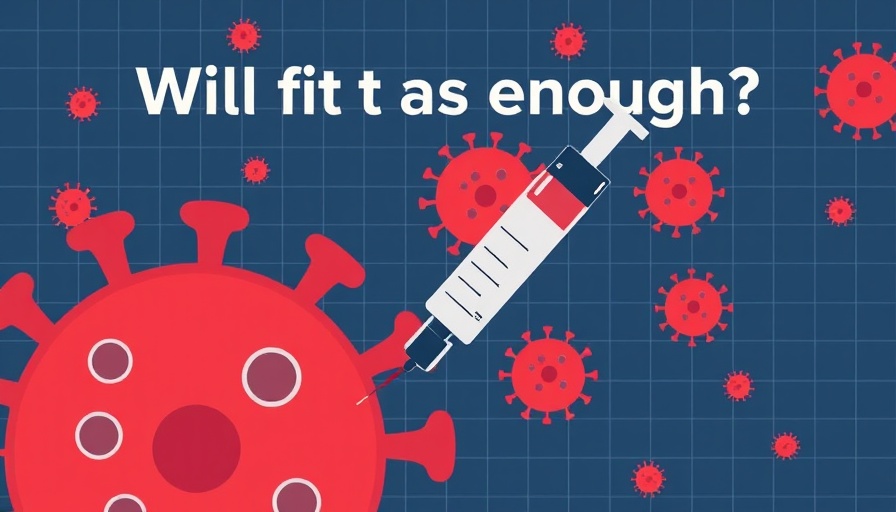
COVID-19 Vaccine Development: A Race Against Time
The race to develop a vaccine against COVID-19 has been one of the most urgent health challenges of our time. As of May 2020, over 169 potential vaccines were in various stages of development, fueled by billions in investments. However, even with remarkable scientific progress, the journey from laboratory to widespread use is fraught with complexities that may lead to significant delays in overcoming the pandemic.
In 'Why It Could Take Years to Beat COVID-19,' the discussion dives into the complexities of vaccine development and distribution, prompting us to analyze the pressing challenges and future implications.
Understanding Vaccine Mechanisms
The fundamental principle of vaccination involves training the immune system to recognize and combat pathogens before they manifest as full-blown illnesses. Vaccines stimulate the immune system, introducing harmless elements of the virus, allowing the body to learn to respond effectively. While this concept appears straightforward, the vaccine development process is anything but simple.
Consider the example of the hepatitis C virus; despite two decades of research, a safe and effective vaccine remains elusive. Similar complications surround the SARS-CoV-2 virus responsible for COVID-19, with numerous factors affecting its vaccine's safety and efficacy.
Safety Comes First: A Critical Step
The safety of any vaccine must be established before it can be administered widely. The dengue vaccine controversy, where it was discovered that some recipients faced heightened risks, underscores the critical importance of extensive testing. A COVID-19 vaccine would require rigorous trials to ensure that the benefits significantly outweigh the risks.
Effectiveness: Meeting Vaccine Expectations
Even with a safe vaccine, effectiveness can vary widely. For instance, vaccines for measles have shown a 99% success rate with two doses, while influenza vaccines typically fall between 50-70% effectiveness due to the virus's constant mutations. The COVID-19 vaccine's success will hinge not only on its safety but also on its efficacy across diverse populations.
The Herd Immunity Challenge
To successfully manage COVID-19, an adequate percentage of the population needs to be vaccinated. The reproduction number (R0) of COVID-19 is estimated at 3, suggesting that approximately 66% of the population would need vaccinations to achieve herd immunity. However, with no vaccine boasting 100% efficacy, this number might need to be higher.
In Australia, this could translate to over 16 million doses that must be administered promptly. Nevertheless, achieving widespread vaccination requires effective systems in place for distribution and public participation, which presents unique challenges. Vaccine hesitancy and differing attitudes towards vaccination can further complicate efforts.
A Global Perspective: A Unified Approach to Vaccination
In an interconnected world, the success of vaccination efforts in one country depends heavily on global actions. The importance of ensuring equitable vaccine access cannot be overstated. With nations competing for limited doses, lower-income nations may find themselves at a disadvantage, amplifying disparities in global health outcomes.
Historical vaccine rollout data reveals stark transactional differences, as seen with the flu vaccine rates in various countries; Australia had a 73% flu shot rate in older citizens in 2018 compared to just 12% in Thailand. Thus, a collaborative and well-coordinated global effort is not only beneficial but essential in overcoming this pandemic.
The Role of Time in Vaccine Deployment
Time is a critical factor in the path to immunization, with every week of delays leading to further repercussions—jobs lost, businesses collapsing, and individuals unable to meet their living expenses. The rollout of a COVID-19 vaccine likely won't be instantaneous; plans must be formulated now to prepare for scalable distribution and production processes.
Efforts should include agreements among nations on collaborative production and distribution of vaccines, alongside partnerships between public and private sectors. Adapting to the new normal of ongoing COVID-19 management might require sustainable practices such as minimizing face-to-face interactions, maintaining good hygiene, and work-from-home options when necessary.
Looking Ahead: The Importance of Global Collaboration
The pandemic has exposed vulnerabilities in global health systems, revealing that actions in one corner of the world can deeply impact others. The challenges posed by COVID-19 raise important questions: how can nations work together to overcome this global health threat? Will the pandemic fortify international relationships or exacerbate existing rifts?
As we navigate this unprecedented period, the urgency of the COVID-19 vaccine raises critical discussions about resource distribution and international collaboration. The impending rollout offers a crucial learning opportunity for a unified global response to future pandemics.
Your Thoughts Matter
We want to hear from you! Do you believe the COVID-19 vaccine will be accessible to everyone? How do you think nations should work together to facilitate this? Share your thoughts in the comments. Together, we can foster a conversation about the future of global health.
 Add Row
Add Row  Add
Add 




Write A Comment